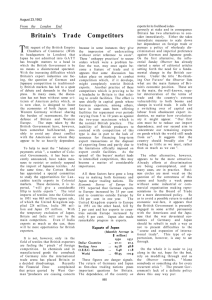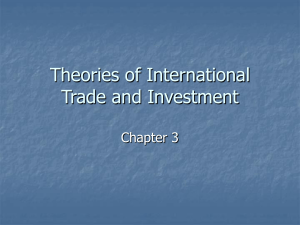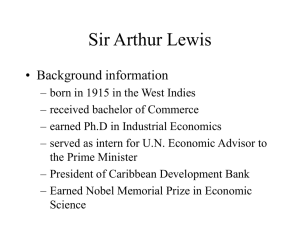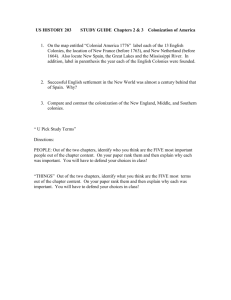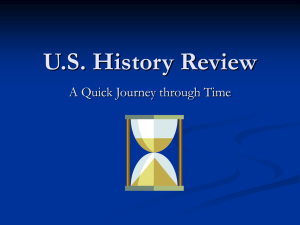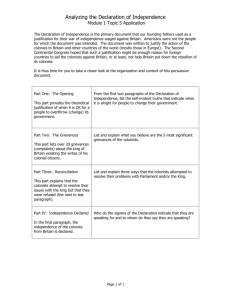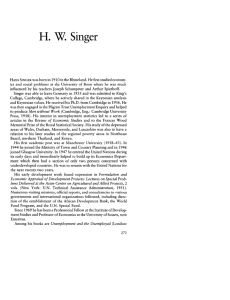THE BRITISH COLONIZATION
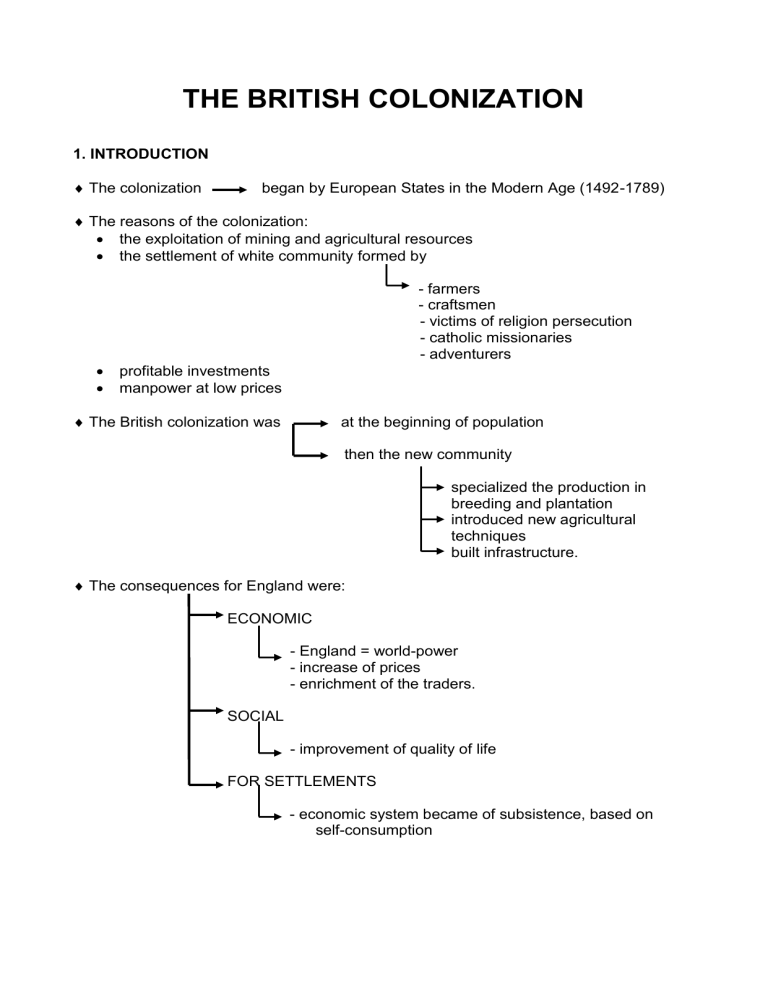
THE BRITISH COLONIZATION
1. INTRODUCTION
The colonization began by European States in the Modern Age (1492-1789)
The reasons of the colonization:
the exploitation of mining and agricultural resources
the settlement of white community formed by
- farmers
- craftsmen
- victims of religion persecution
- catholic missionaries
- adventurers
profitable investments
manpower at low prices
The British colonization was at the beginning of population
then the new community
specialized the production in
breeding and plantation
introduced new agricultural
techniques
built infrastructure.
The consequences for England were:
ECONOMIC
- England = world-power
- increase of prices
- enrichment of the traders.
SOCIAL
- improvement of quality of life
FOR SETTLEMENTS
- economic system became of subsistence, based on
self-consumption
2. THE BRITISH NORTH ATLANTIC TRADING SYSTEM
Atlantic trading area North America, the Caribbean and West Africa
The “Commercial Triangle” - British manufactured goods were exported to the
West Indies and North America in return for tropical
or semi-tropical products, either for consumption in
Britain or for re-export to European markets.
AMERICA
NORTH
Commodities
Manufactured goods
WEST
INDIES
Slaves
U.K.
Manufactured goods
EUROPE
WEST
AFRICA
- The principal items in the reverse trade of tropical and semi-tropical commodities for
Britain originated either in the southern continental colonies: tobacco from Maryland
and Virginia, rice and indigo from South Carolina, from the West Indies sugar,
cotton and coffee.
For “Navigation Acts” it was illegal for colonies
to import manufactured goods
that had not been shipped from
Britain
to export listed commodities to any
destination other then Britain.
3. IMPORTS / EXPORTS OF NORTH AMERICAN COLONIES
Imports - manufactured goods from Britain in large proportion
Navigation Acts
Exports - most of their commodities to Britain
- commodities that were not enumerated (agriculture products and
fish) to southern Europe
with export
illegal or smuggled trade to balance the amount of imports
4. EXPORTS FROM THE WEST INDIES
British West Indies - major sugar producers for Britain
commanding position in the world market
- traded with other parts of the Atlantic
from Africa slaves to maintain the labour force on
plantations and to extend cultivation
British Caribbean IMPORT food or timber
British North America
EXPORT sugar and rum
ILLEGAL TRADES IMPORT silver, hides, dyes
Logwood
EXPORT British
Manufactured goods
Spanish
and
France
colonies
5. BRITISH EXPORT FROM WEST AFRICA
XVIII cent. British became the largest carriers of slaves from West Africa
the trade was taken over by a large number of individual merchant
or small partnerships based on Bristol, Liverpool and London
Slaves obtained at many different points along the West Africa costs
destined to the British Caribbean colonies
WEST AFRICA IMPORTS textiles, metals and
manufactured metal
goods (such as guns)
EXPORTS gold, gum or hides
6. INDIA, SOUTH-EAST ASIA AND CHINA
China EXPORTS tea from Canton to London the only place at which, under tight restriction,
European trade with China was permitted
U.K.
India EXPORTS XVIII century cotton to China, shipped out
XIX century
of Bombay
opium produced under East India
Company’s monopoly
Illegal, but a large smuggling operation ensured that opium reached its destination
The huge growth of this smuggling in the 1820s
eventually produced the crisis that led to the Opium War.

